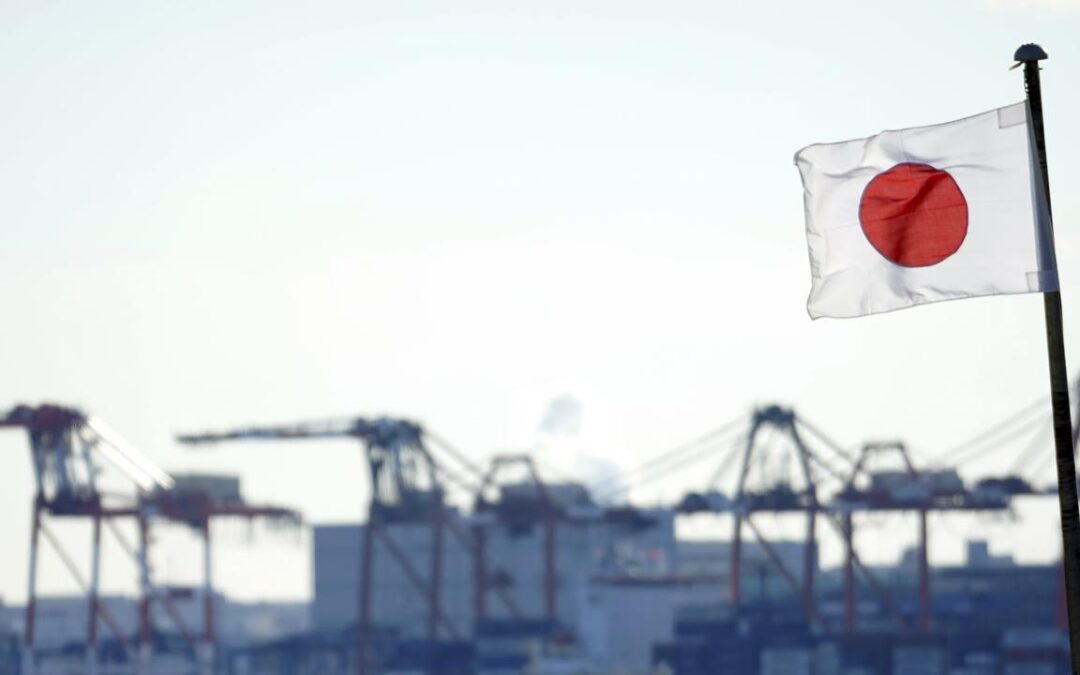
Japan economy contracts for first time in six quarters
Japan’s economy contracted an annualised 1.8 per cent in the July-September quarter, the first fall in six quarters, due to a hit to exports from US tariffs.
Government data released on Monday showed the decline, while not as steep as expected, could complicate the Bank of Japan’s plans to raise interest rates further.
Analysts are now focusing on how soon the world’s fourth-largest economy will overcome the tariff impact and rebound.
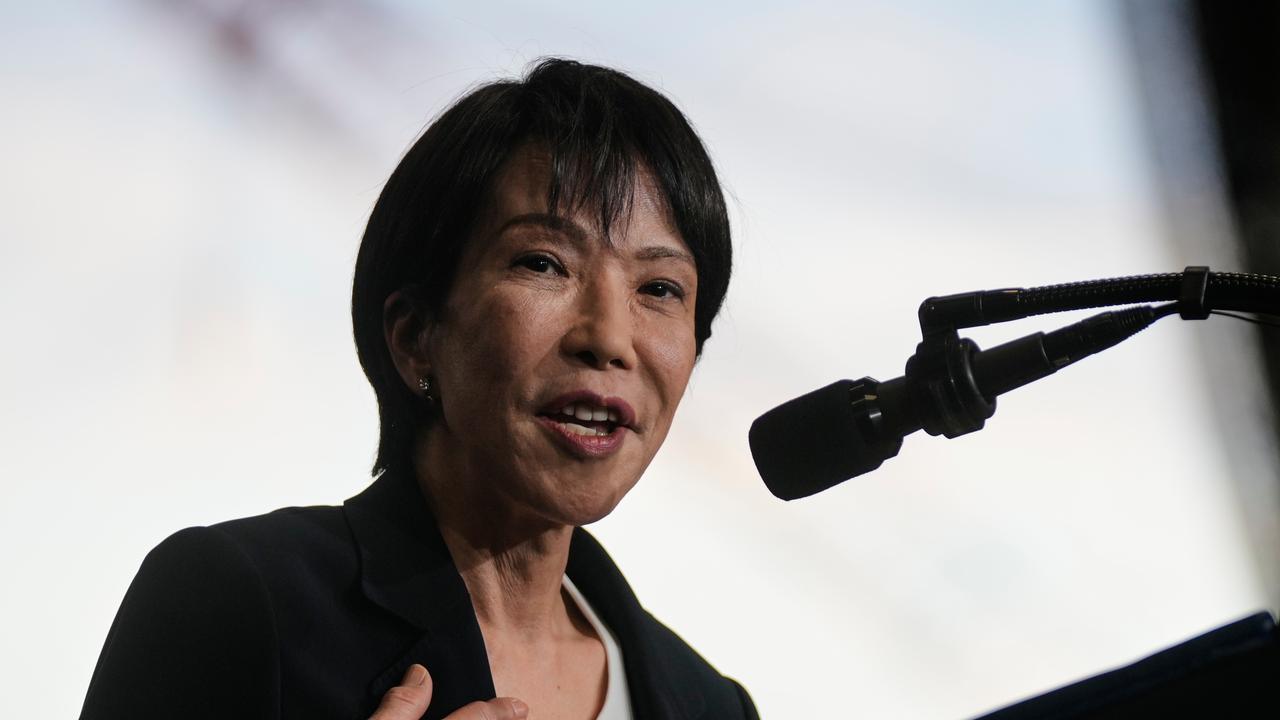
The decrease in gross domestic product was narrower than a median market estimate of a 2.5 per cent fall in a Reuters poll.
It followed revised growth of 2.3 per cent in the previous quarter, when the economy got an extra boost from solid exports that reflected front-loading shipments to the US as Japan’s tariffs negotiations lingered.
Washington formalised a trade agreement with Tokyo in September, implementing a baseline 15 per cent tariff on nearly all Japanese imports, down from the initial 27.5 per cent on autos and a 25 per cent duty threatened for most other goods.
The third-quarter reading translated into a quarterly fall of 0.4 per cent, better than the median estimate of a 0.6 per cent contraction.
Private consumption, which accounts for more than half of economic output, rose 0.1 per cent, matching a market estimate.
But that cooled from the 0.4 per cent rise in the second quarter, indicating that high food costs kept households reluctant to spend.
Net external demand, or exports minus imports, knocked 0.2 of a percentage point off growth, versus a 0.2 point positive contribution in the April-June period.
Capital spending, a key driver of private demand-led growth, rose 1.0 per cent in the third quarter, versus a rise of 0.3 per cent in the Reuters poll.
The weak GDP data comes as new Prime Minister Sanae Takaichi’s government is compiling a stimulus package to cushion the blow to households from the rising living costs.
Close economic advisers to Takaichi have cited a likely sharp GDP contraction as a reason for aggressive stimulus measures.
The latest data could embolden those advisers to call for the BOJ to go slow in raising interest rates, analysts say.
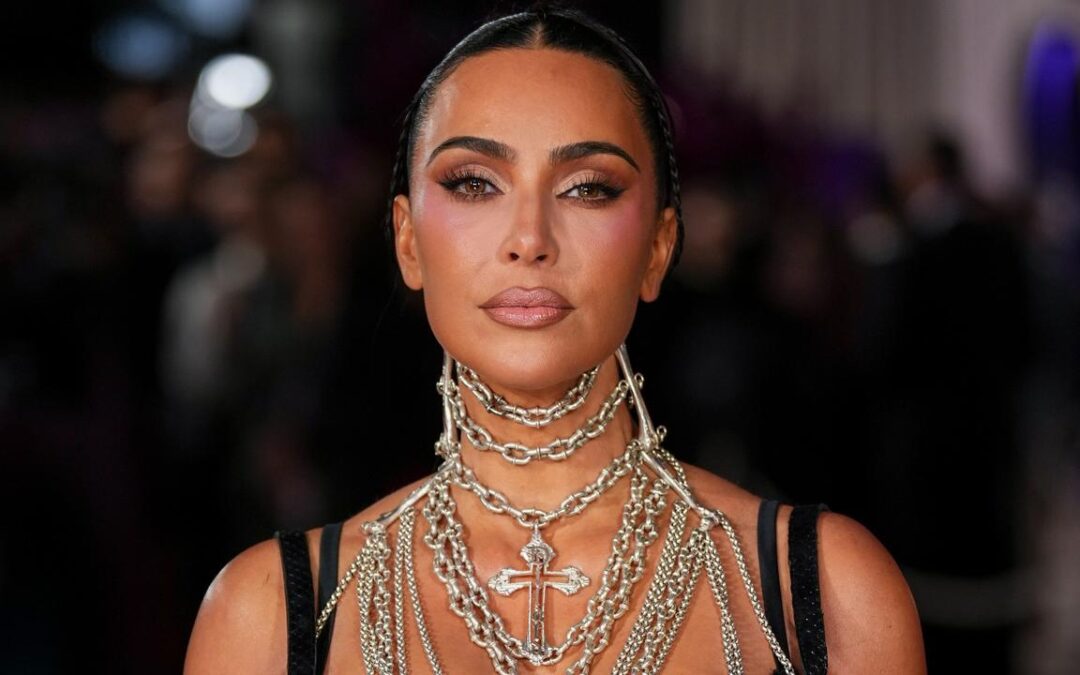
Kim Kardashian not deterred by bar failure
US reality TV star Kim Kardashian has said she will “keep studying” after she failed her bar exam and was unable to qualify as a lawyer.
Her plan to follow in the footsteps of her late father, Robert Kardashian, who was a member of OJ Simpson’s defence team, has been delayed but the businesswoman, who plays a divorce lawyer in new Ryan Murphy show All’s Fair, said she will keep going “until I get there”.
The Skims co-founder, 45, known for starring alongside her family in the reality TV show The Kardashians, passed her “baby bar” exam on her fourth attempt in 2021 and said in May that she had graduated from a law program.
In October, she revealed in an appearance on The Graham Norton Show that she was due to qualify in two weeks.
“I will be qualified in two weeks. I hope to practise law. Maybe in 10 years I think I’ll give up being Kim K and be a trial lawyer. That’s what I really want,” she said.
In an Instagram post on Sunday, she released video of her final two weeks of studying – “the ups, the downs, and everything in between”.
“On November 7th, I found out I didn’t pass the bar. It was disappointing, but it wasn’t the end,” she said.
“This dream means too much to me to walk away from, so I’m going to keep studying, keep learning, and keep showing up for myself until I get there.”
Kardashian shared a video that offered an insight into the preparation she did for the exam, showing her organising her essays and writing on a whiteboard.
She studied for four months straight and “cancelled all work calls”, she said.
In another clip, taken the day before her bar exam, she said: “I feel good, like I feel prepared”.
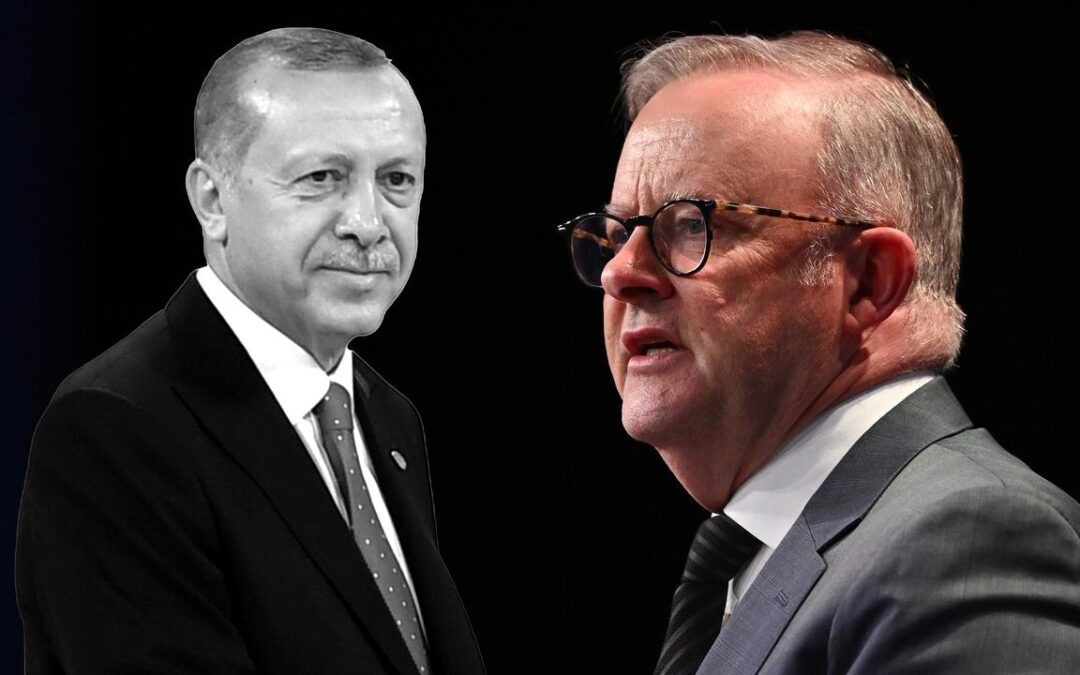
Australia downplays joint climate event with Turkey
Australia has poured cold water on the idea it could jointly lead the world’s biggest climate conference with Turkey.
Both countries have days to try to resolve the years-long stand off over hosting rights for the 2026 United Nations climate conference as this year’s COP30 draws to a close.
The mounting pressure has reportedly led Turkey to propose a joint presidency model with Australia, which would include sharing hosting duties for high-level meetings and jointly steering negotiations.
But cabinet minister Kristy McBain downplayed the suggestion.
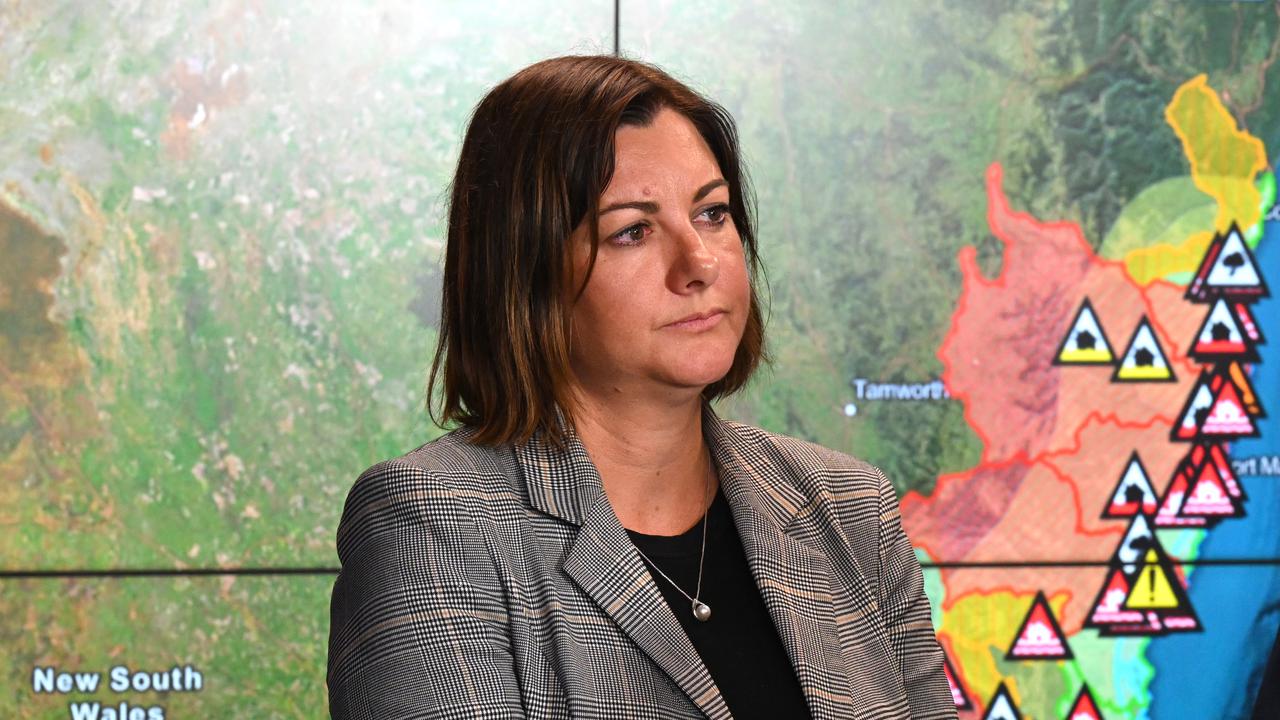
“It’s important that these deliberations play out,” she told ABC News on Monday.
“(But) one of the reasons that we wanted to bring COP here and co-host it with our Pacific Island neighbours was so that people got a real understanding of what was actually happening in communities already.”
Climate Change Minister Chris Bowen has travelled to the Amazonian city of Belem for COP30 to represent Australia and try to seal the deal on next year’s conference through talks with his Turkish counterparts.
Before his departure on Saturday, he maintained Australia had the “overwhelming support of the world” to host the event.
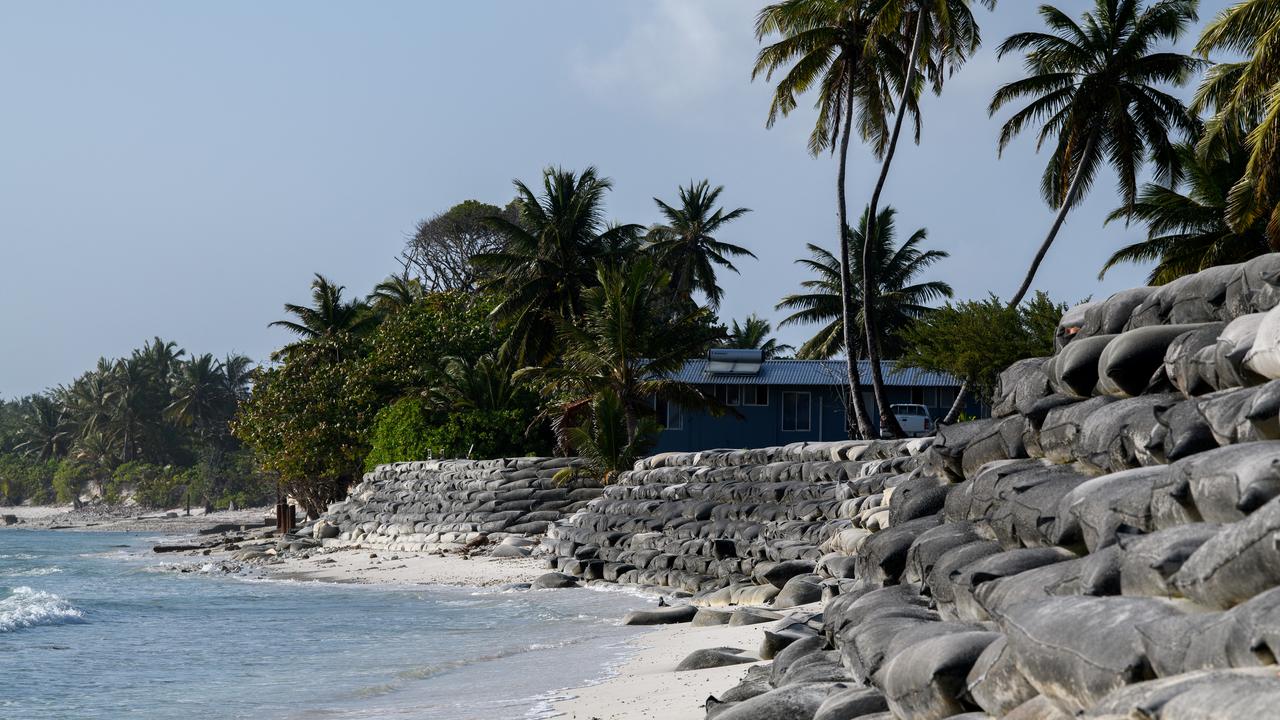
However, the United Nations’ annual Conference of the Parties lacks provisions to break deadlocks over such disputes, with the scenario relying on one side or the other voluntarily withdrawing.
“That means we need to reach an agreement with Turkey – that’s difficult,” Mr Bowen told reporters.
“I do know it’s in Australia’s best interest to be COP president and to host COP.”
In a bid to break the stalemate, Prime Minister Anthony Albanese wrote to Turkish President Tayyip Erdogan earlier in November.
But Turkey has refused to back down, saying its candidacy emphasises co-operation and inclusiveness and aims to put greater focus on financing for developing countries while showcasing its progress towards a 2053 net zero emissions goal.
This year’s climate change conference is expected to wrap up on Friday, and Mr Bowen has said the hosting deal will be decided by then.
If it remains undecided, Germany – as the home of the UN climate headquarters – may have to take on the responsibility for the 2026 conference.
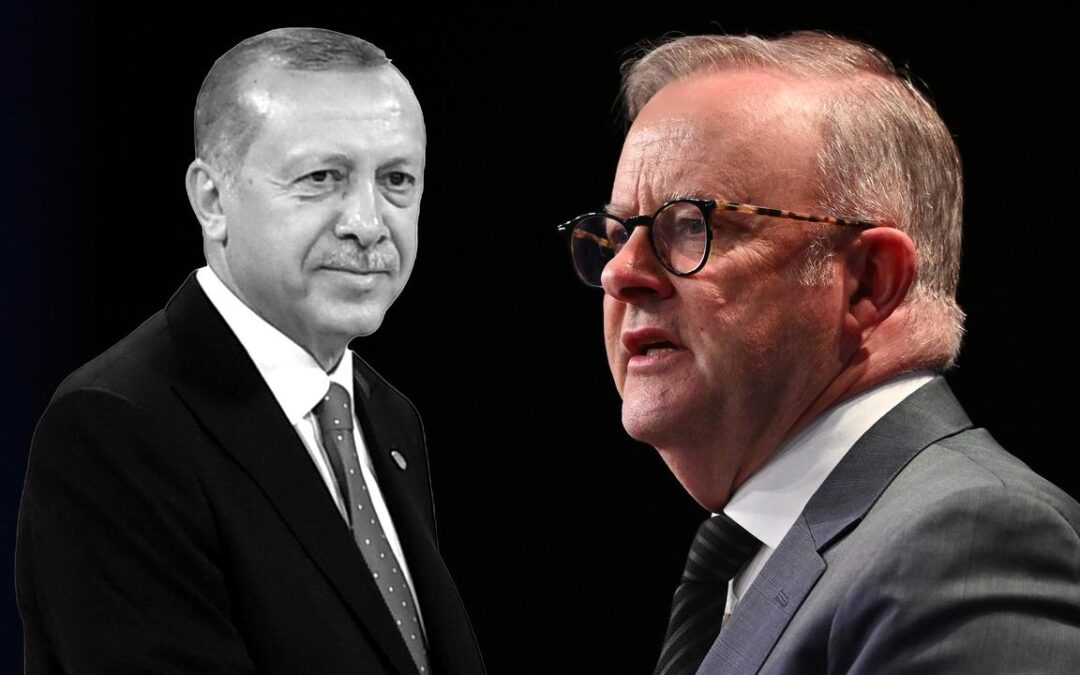
Turkey proposes joint leadership with Aust for COP31
Turkey has proposed jointly leading next year’s UN climate summit with Australia, though the two sides have not yet reached an agreement and the discussions on the hosting standoff remain unresolved, Turkish diplomatic sources said.
Australia and Turkey both submitted bids in 2022 to host COP31 and neither has withdrawn, leading to an attention-sapping impasse that must be overcome at this year’s COP30 meeting currently taking place in Belem, Brazil.
The annual COP – or Conference of the Parties – is the world’s main forum for driving climate action. The host matters because they set the agenda and lead the diplomacy needed to reach global agreements.
The Turkish sources said Turkey and Australia explored a joint presidency model during talks on the margins of the UN General Assembly in September, including sharing hosting duties for high-level meetings and jointly steering negotiations.
Those conversations created “a basis of mutual understanding”, they said, but the proposal had not advanced.
According to the sources, later exchanges showed differing views on how a co-presidency could function within UN procedures.
Australian Energy Minister Chris Bowen travelled to Brazil on Saturday for COP30, saying a decision would be taken there and that Australia had “overwhelming support” for its candidacy.
Canberra says it wants to co-host with Pacific island nations to highlight the climate threats they face. The Pacific Islands Forum is backing Australia’s bid.
Turkey, for its part, says its candidacy emphasises cooperation and inclusiveness and aims to put greater focus on financing for developing countries while showcasing its progress towards a 2053 net-zero emissions goal.
President Tayyip Erdogan expressed this view in recent correspondence with the Australian prime minister, the Turkish sources said, adding that Turkey still believed “flexible formulas” could be developed through continued consultations.
At the same time, the sources said Turkey was prepared to host the summit alone and assume the presidency if no agreement was reached.
The annual talks rotate through five regional groups, with COP31’s host needing to be unanimously agreed upon by the 28 members of the “Western Europe and Others Group” bloc, which includes Australia and Turkey.
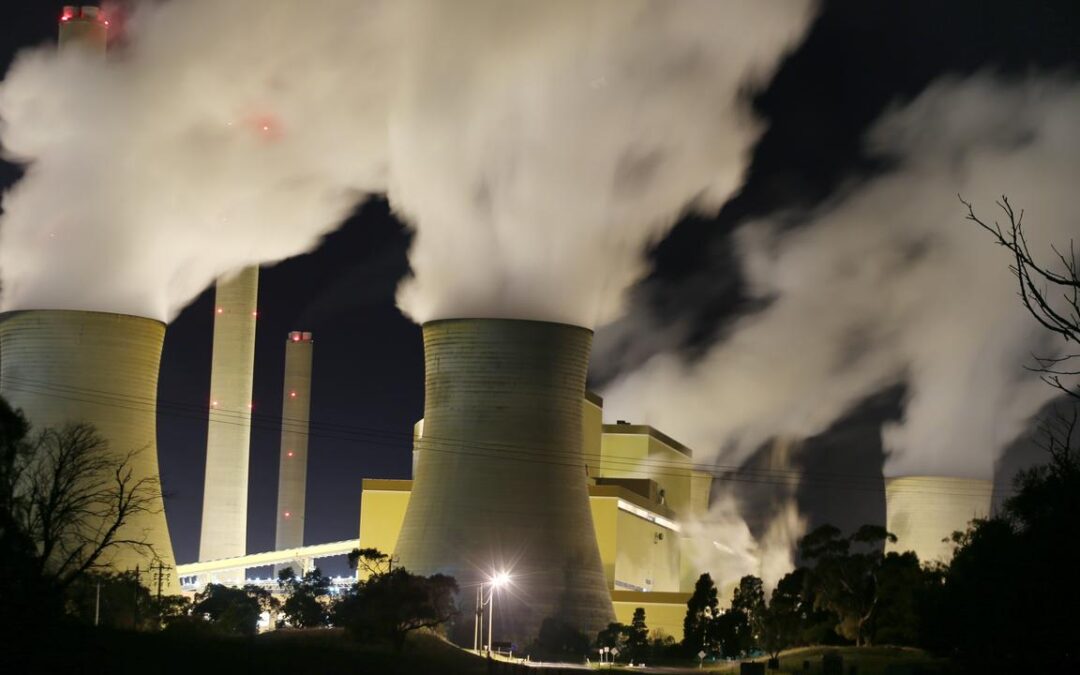
Coalition whipped for policy akin to ‘horse and buggy’
The coalition’s energy policy to keep coal plants open and sideline renewables has been likened to fighting against gravity and reverting to the horse and buggy.
Liberal leader Sussan Ley and Nationals counterpart David Littleproud outlined the coalition’s new policy on Sunday, focusing on affordability rather than emissions reductions.
Shifting away from renewable energy by keeping coal plants open and underwriting energy investments including coal and gas with taxpayer funds are key planks of the coalition’s policy after dumping a net-zero emissions target.
The energy policy shift comes as new opinion polling shows coalition supporters jumping ship to One Nation and Labor and Ms Ley’s popularity plummeting to a record low.
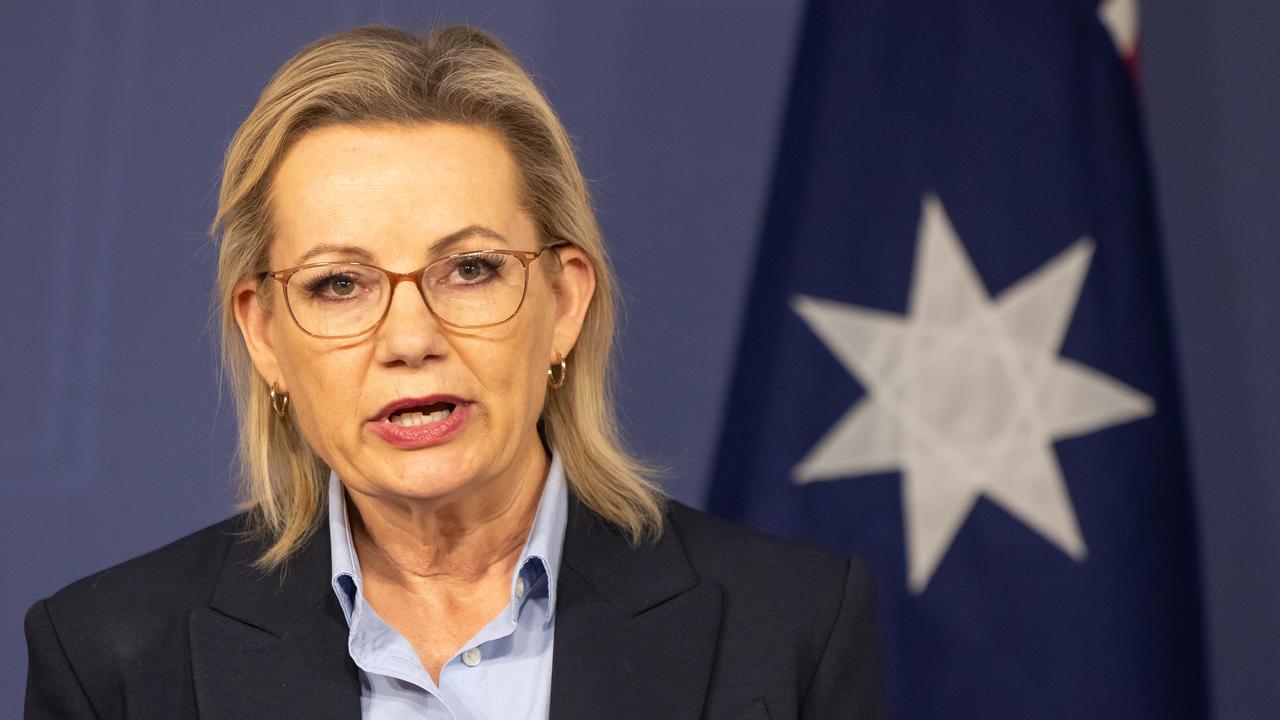
“Our plan secures Australia’s energy future by putting affordability first,” Ms Ley told reporters in Sydney.
The coalition still sought to reduce carbon emissions but not at the expense of family or business budgets, she said.
Griffith University Associate Professor Joel Gilmore, an energy systems expert and member of the pro-renewables Climate Council, said net zero was the best way to reduce energy costs.
“It’s very clear that relying on coal and gas is going to be more expensive than renewables,” he told AAP.
“To fight against net zero is fighting against gravity.”
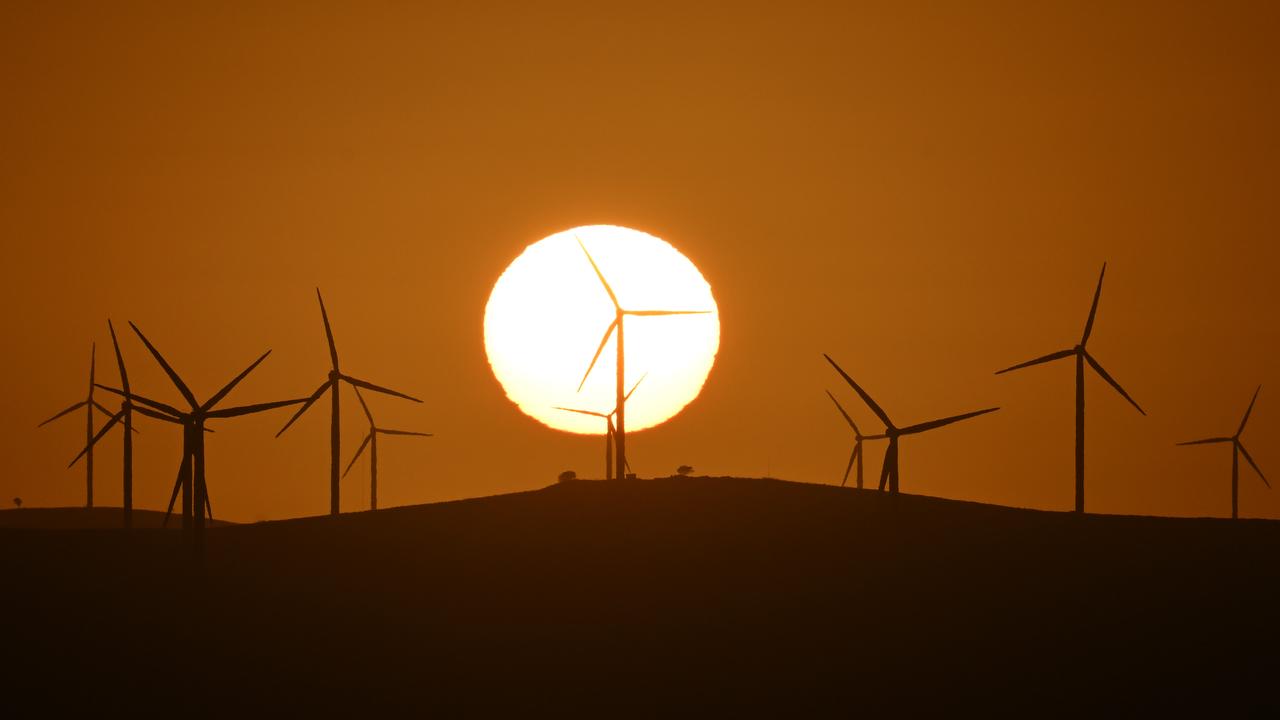
Under the coalition’s policy, interim emissions reduction targets are also opposed along with various Labor policies to bring down emissions.
These include a safeguard mechanism capping big polluters’ emissions and a scheme designed to encourage uptake of electric vehicles.
Australia was competing with many international markets for investment, so anything that damaged investment certainty was going to push up costs, Prof Gilmore said.
The coalition’s support for coal was concerning in terms of damaging climate change impacts and was not consistent with Australia’s commitments to the Paris climate accords, he said.
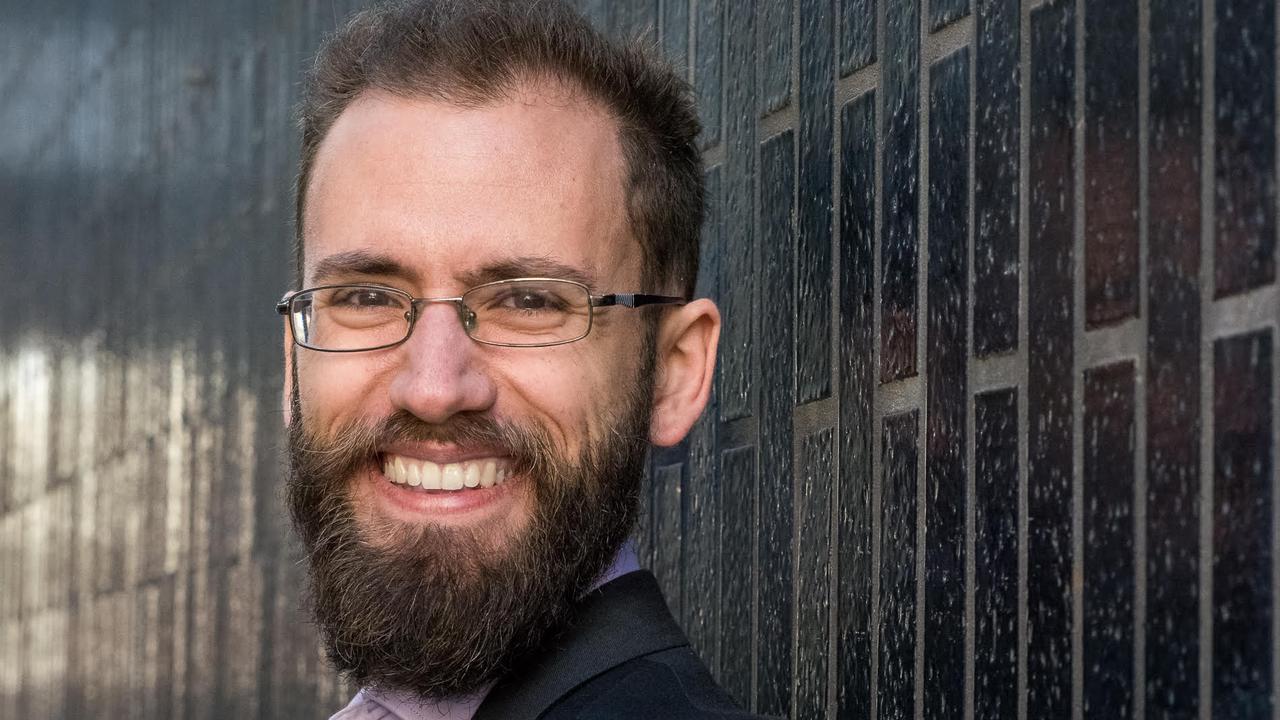
“It’s a nonsensical position to say we can turn back to coal any more than we would turn back to the horse and buggy,” Prof Gilmore said.
Household instalment of solar roof panels and batteries and the purchase of electric vehicles were already showing the benefits of those technologies in cutting costs, he said.
Polling published by the Australian Financial Review on Sunday night found the coalition’s primary vote fell five percentage points in a month to a poll-record low of 24 per cent, while One Nation rose four points to 18 per cent and Labor also gained four points to 38 per cent.
The poll of 1011 voters also shows Ms Ley with just 10 per cent of voters preferring her as prime minister, compared with 40 per cent for Anthony Albanese.
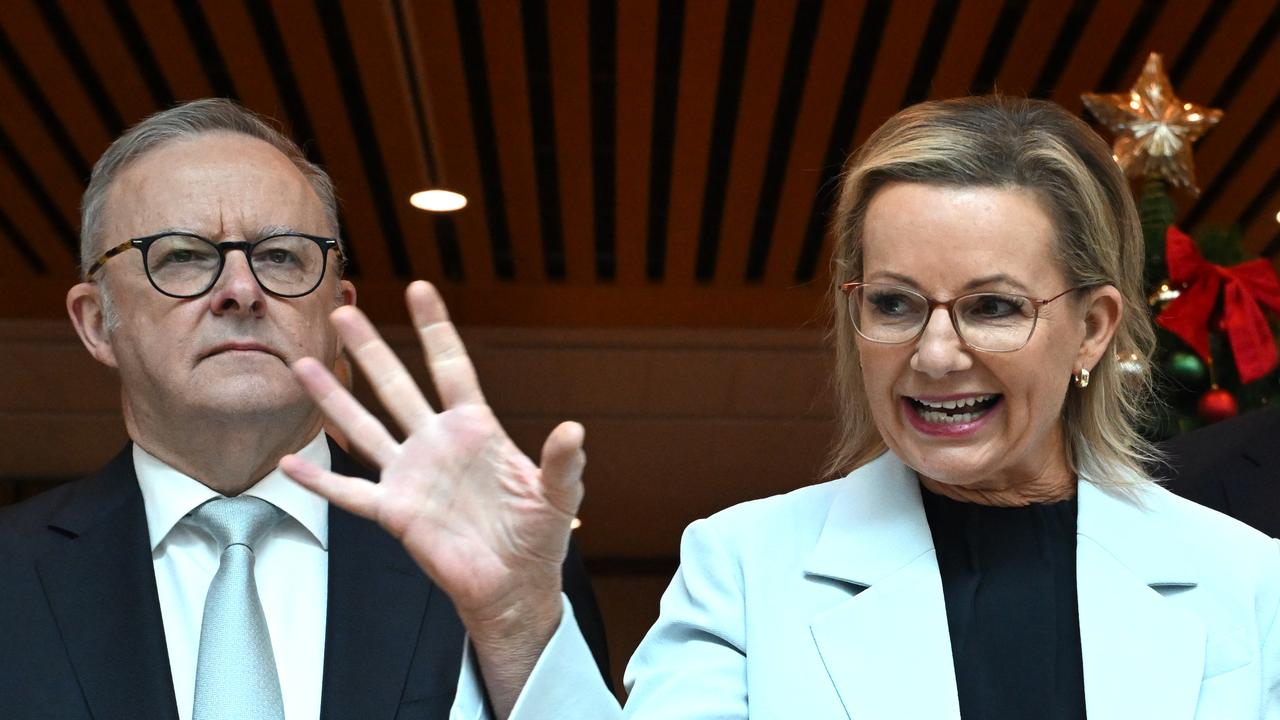
Mr Albanese says the coalition’s “uncertainty” on energy and climate policy will put increased pressure on power prices.
“If anyone thinks that there is certainty in the coalition going forward, then they’re not paying any attention to the rabble and clown show that the coalition have become when it comes to energy policy and climate policy,” he told reporters in Melbourne.
At the last two federal elections, the Liberal Party lost inner-city seats to independent candidates focused on climate action.
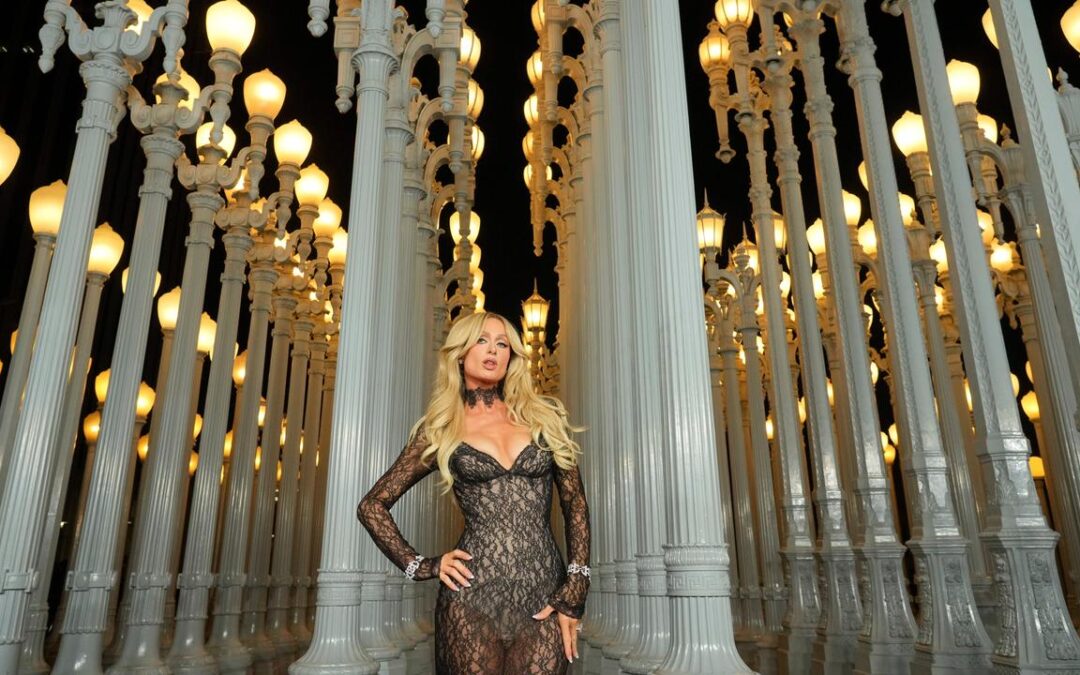
Heiress Paris Hilton claims to be ‘self-made’
Paris Hilton has claimed she is “self-made”.
The 44-year-old heiress – whose parents, Rick and Kathy Hilton, have a combined net worth of hundreds of millions of dollars – is proud of what she has achieved with her company 11:11 Media, which employs 25 people and she claims is valued at $US1 billion ($A1.5 billion).
She told The Times newspaper: “I’m self-made. Like, I’ve done this all on my own.
“No one’s ever given me anything in my entire life.”
Paris’ late grandfather Barron Hilton – who reportedly left 97 per cent of his wealth to the family’s charity when he died in 2019 – was proud of her work ethic and they had an “extremely close” relationship.
She said: “We were extremely close and we would always have lunches and dinners, and he would always say to me, ‘Paris, you work harder than any CEO I know.
“And he’s, like, ‘I used to be known as Barron Hilton but now I’m known as Paris Hilton’s grandpa.’ We would always laugh about it.”
The Stars are Blind hitmaker has two-year-old Phoenix and London – who were born via surrogate in January and November 2023 respectively – with husband Carter Reum and while she doesn’t want them to become “influencers”, she hopes they will have her entrepreneurial streak.
She added: “If I’m in a meeting they’re always sitting with me, so I feel like they’re soaking it in already, to see their mom do so many things and be successful in so many different areas.”
Having her children made Paris think more about mortality and she has grown “obsessed with longevity” because she hopes to live well beyond 100.
Discussing her plans for a “wellness and longevity centre” in her home, she said: “I’m, like, obsessed with longevity.
“It’ll be like no spa you’ve ever seen in the world. The whole room is going to be pink with crystals and it’s just going to look like you’re walking into another realm, like a different planet almost, where it’s just, like, this fantastical, high-tech, futuristic place.
“I’ve heard my friends say it’s possible now to live to, like, 150, 160 years old.
“I wish I could just, like, live for ever. I’m not scared of many things in life except spiders, bees – and dying. I’m just so scared of that.
“Because I just feel like, if it was just nothing – which I know it’s not – that would be so boring.”
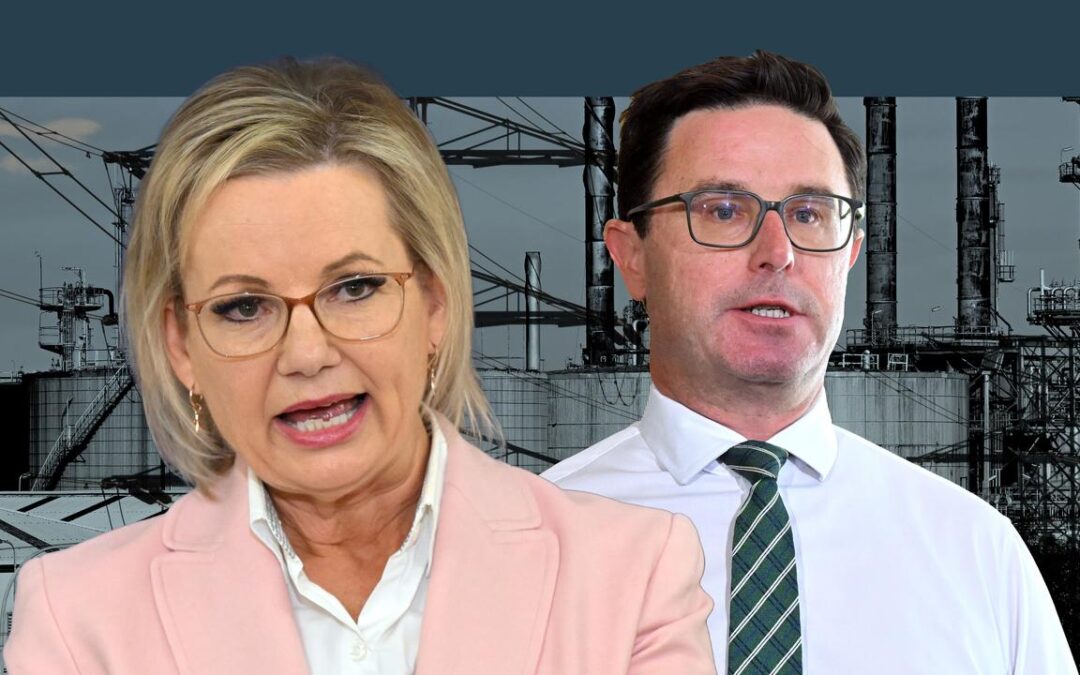
Coalition outlines climate plan after ditching net zero
Gas supply will be key to the coalition’s energy policy after the federal opposition walked away from a net-zero emissions target.
Speaking after senior Liberals and Nationals met to endorse the plans, Opposition Leader Sussan Ley said the coalition sought to reduce carbon emissions, but not at the expense of family or business budgets.
“Our plan secures Australia’s energy future by putting affordability first,” she told reporters in Sydney on Sunday.
“The plan that I released today is all about affordable energy and responsible emissions reduction.”
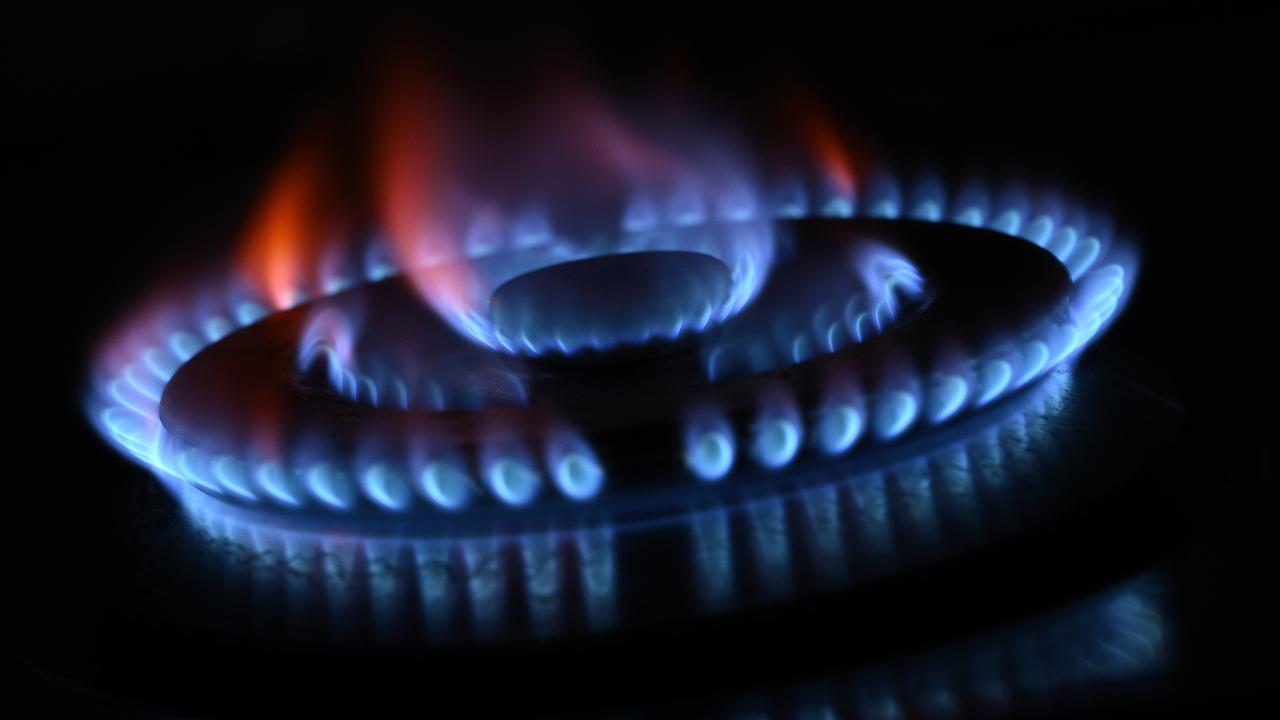
Under the coalition, interim emissions reduction targets are also opposed along with various Labor policies to bring down emissions.
These include a safeguard mechanism capping big polluters’ emissions and a scheme designed to encourage uptake of electric vehicles.
The coalition would establish an east coast gas reserve, put constraints on renewable projects in regional areas and remove a ban on nuclear power.
Nationals leader David Littleproud said the coalition settled on a “cheaper, better, fairer way” to reduce emissions and curb climate change.
“This debate is not one predicated on science. It is one predicated on economics.”
Opposition energy spokesman Dan Tehan said he looked forward to selling their affordable plan “because there is now a very, very clear contrast when it comes to this debate”.
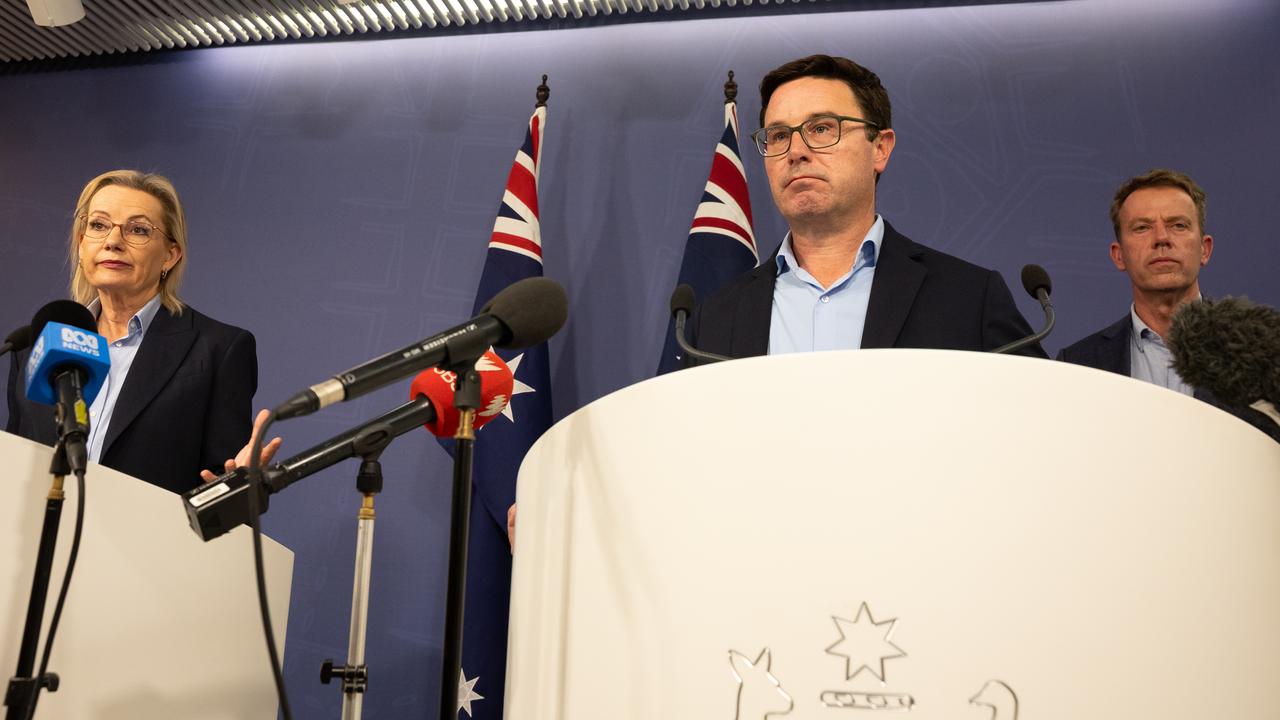
Opening new gas fields forms part of the coalition’s policy.
Taxpayer funds would be used to underwrite power generation, including coal and gas-fired stations.
“Consumers can be absolutely confident that once we have charge of energy policy in this country, we will start to change the rules as soon as possible,” Ms Ley said.
That meant changing the rules around the supply of gas and the operating rules of the energy system.
Foreign Minister Penny Wong, a veteran of Canberra’s so-called climate wars, earlier said the coalition’s decision to abandon net zero would do little to shift public opinion.
Watered-down climate targets would drive up power prices for Australians and show disrespect towards Pacific nations, Senator Wong said.
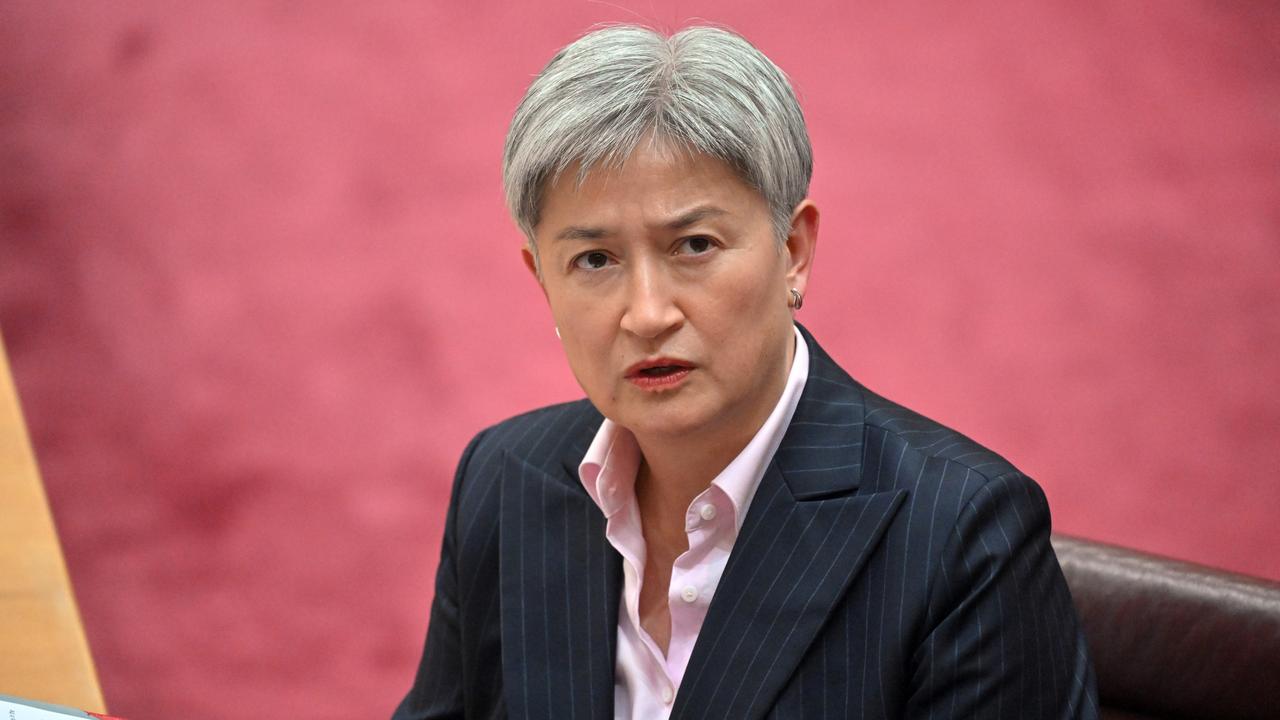
Prime Minister Anthony Albanese echoed her comments, saying the coalition’s “uncertainty” on energy and climate policy would put increased pressure on power prices.
“If anyone thinks that there is certainty in the coalition going forward, then they’re not paying any attention to the rabble and clown show that the coalition have become when it comes to energy policy and climate policy,” he told reporters in Melbourne.
Climate policy has been a contentious issue within the coalition for decades.
At the last two federal elections, the Liberal Party lost inner-city seats to independent candidates focused on climate action.
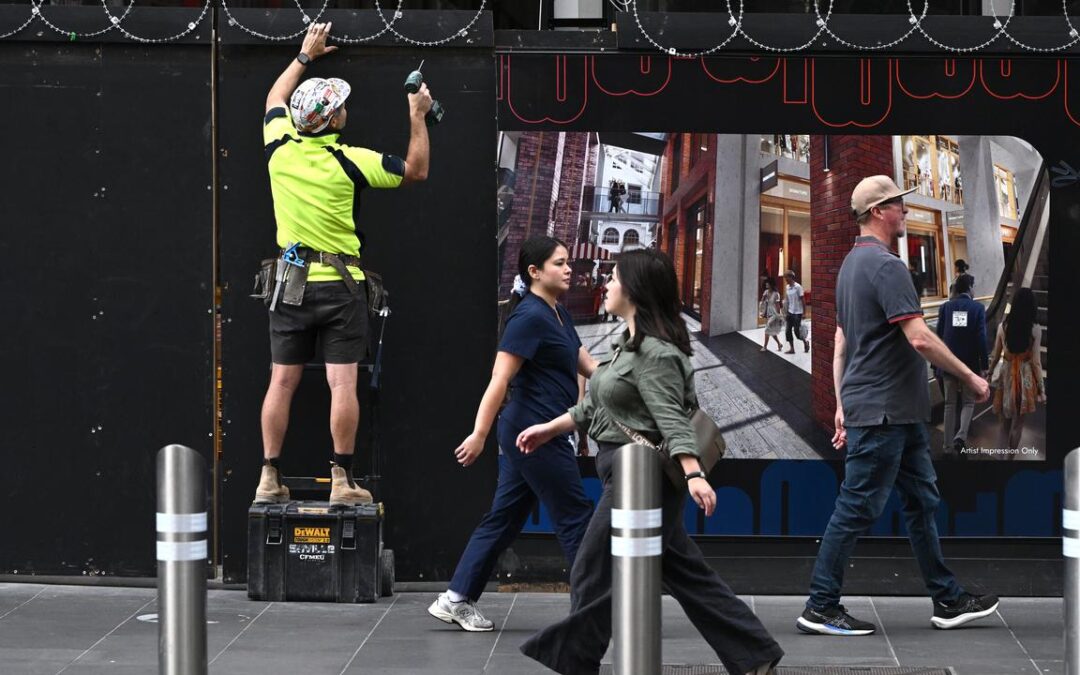
Wages data could force RBA to turn page on rates cut
Mortgage holders stressed by the prospect of another interest rate cut will need to hope Australians are not earning as much as predicted.
The quarterly wage price index, out on Wednesday, looms as one of this year’s last game-changing releases.
Running at 3.4 per cent in the year to June, a repeat of that figure – which is both the market consensus and the Reserve Bank’s forecast – would represent no change to the already slim prospects of a cut.
Should it tick lower, a rate cut could be back on – most likely in the first half of 2026. If it runs higher, it could signal the bottom has been reached in this cycle of cuts.

“Another rate cut is already down to around a 40 per cent chance on the money market,” AMP chief economist Shane Oliver told AAP.
“If you go back a few months ago, there was waxing and waning as to whether it would be one or two cuts.
“So if the wage numbers come in much above 3.4 per cent, that further reduces the prospects for a cut at all.”
Wage growth peaked in late 2023, when the annual rate topped four per cent for the first time in 15 years.
It has since moderated to 3.4 per cent, although this figure is still higher than for much of the past decade.
The Reserve Bank last met on Melbourne Cup day, and on Tuesday it will release minutes from that meeting, which are expected to confirm governor Michele Bullock’s low enthusiasm for a cut.
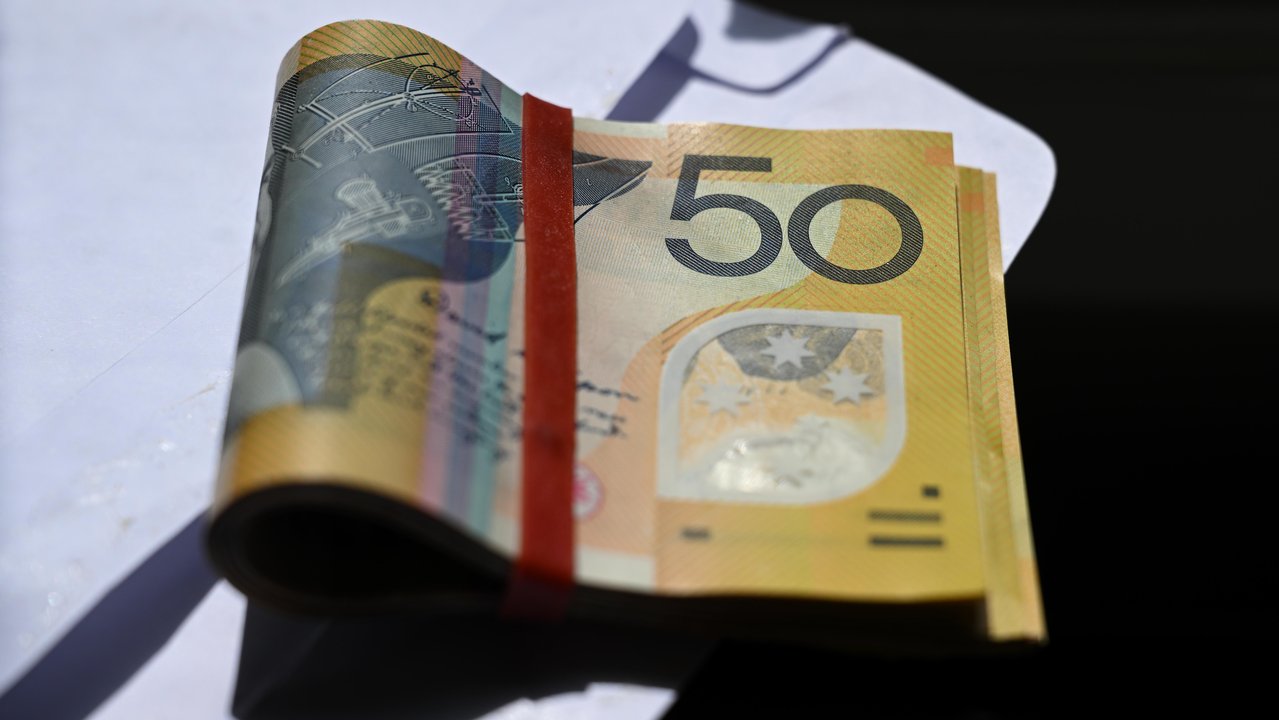
Higher-than-expected consumer price index inflation, running at 3.2 per cent in the year to September, inspired central bankers to leave the cash rate target at 3.6 per cent in October.
So while next week is unlikely to bring good news for borrowers, they will at least be able to engage in some political flagellation of their financial masters.
On Tuesday and Wednesday, parliament will haul leaders from the big four in for committee hearings ordered by Treasurer Jim Chalmers.
Committee chair Ed Husic says the chance to quiz the top brass will be valuable.
“A lot of people feel, and have felt in times past, that banks haven’t been subject to scrutiny,” he said.
“So it’s a good platform for important questions to be asked about the way in which the banking system impacts on customers and the way it impacts on employees.”
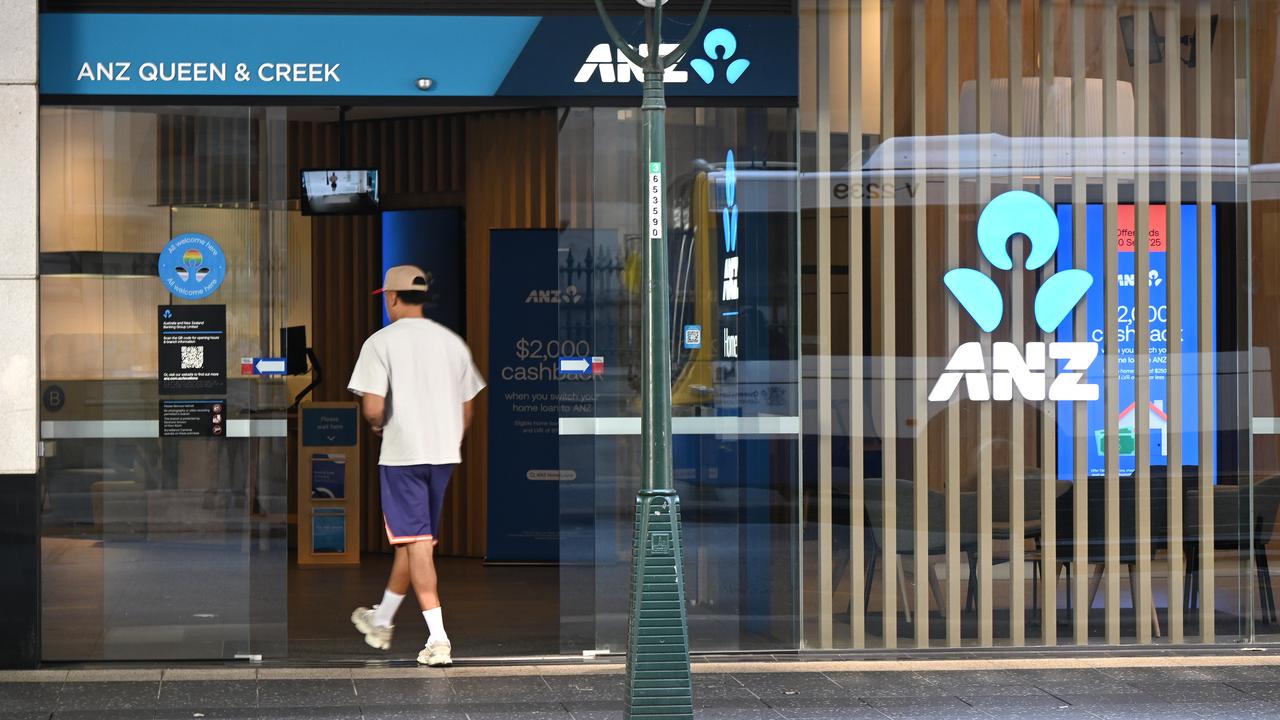
Mr Husic said the committee would examine surcharges, regional services, scams and the impact of AI on customers.
The terms of reference allowed the committee to probe interest rates, with Mr Husic saying those questions would be around how those decisions were reached, rather than arguing for lower rates.
“There have been instances where there’s been a difference between the timing of the RBA’s decision on interest rates and when that flows through in banks,” he said.
US investors are meanwhile eyeing next week’s quarterly results from AI computing company Nvidia and worrying whether the Federal Reserve will hold off on cutting interest rates in December.
Wall Street ended mixed on Friday, following an early sell-off that dragged all three major indexes down more than 1 per cent.
The S&P 500 fell 0.05 per cent to end at 6,734.11 points. The Nasdaq gained 0.13 per cent to 22,900.59 points, while the Dow Jones Industrial Average declined 0.65 per cent to 47,147.48 points.
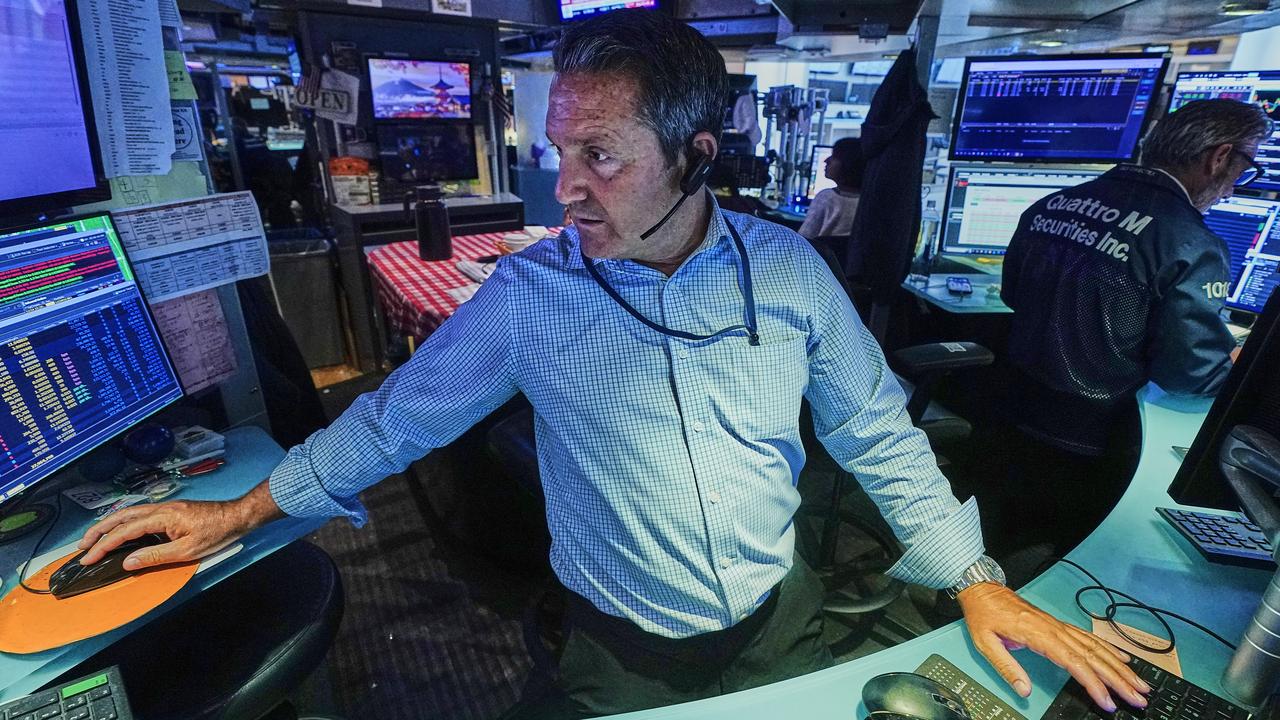
Australian share futures lost 12 points, or 0.13 per cent, to 14,228.
Australia’s main indices closed at an almost four-month low on Friday, with the market suffering its worst day in 10 weeks amid a global pullback in risk assets.
The benchmark S&P/ASX200 index dropped 118.9 points, or 1.36 per cent, to 8,634.5, while the broader All Ordinaries fell 127.5 points, or 1.41 per cent, to 8,9087.
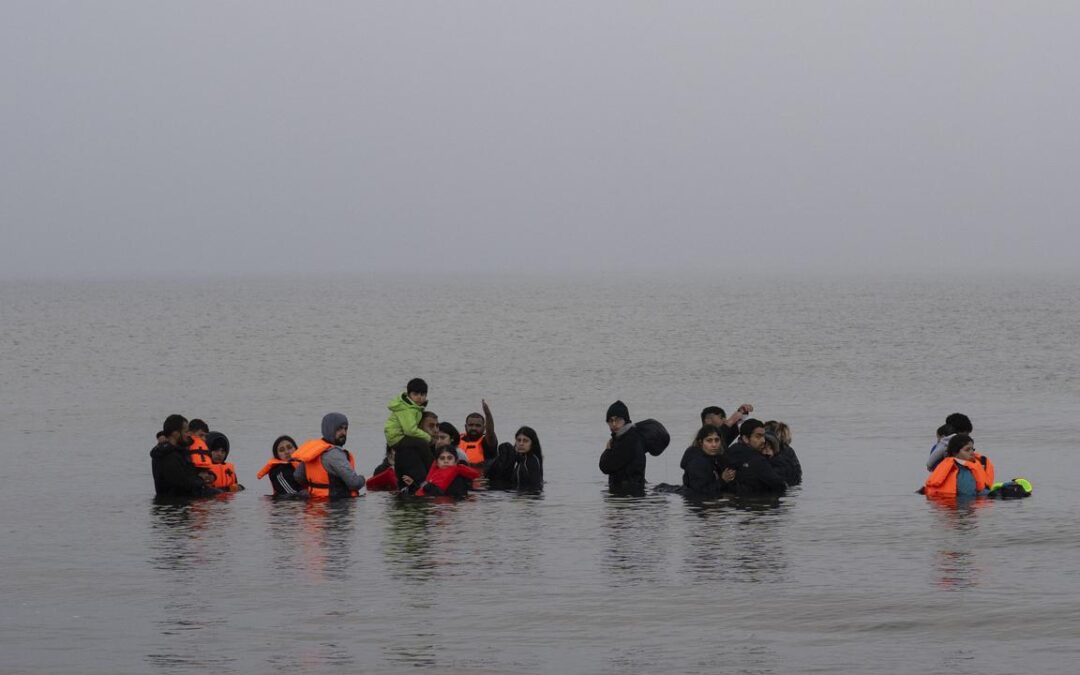
Britain announces massive asylum policy overhaul
Britain is launching the largest overhaul of policy on asylum seekers in modern times, drawing inspiration from Denmark’s approach, one of the toughest in Europe.
The Labour government has been hardening its immigration policies, particularly on illegal small-boat crossings from France, as it seeks to stem the surging popularity of the populist Reform UK party, which has driven the immigration agenda and forced Labour to adopt a tougher line.
As part of the changes, the statutory duty to provide support to certain asylum seekers, including housing and weekly allowances, will be revoked, the Home Office said in a statement on Saturday.
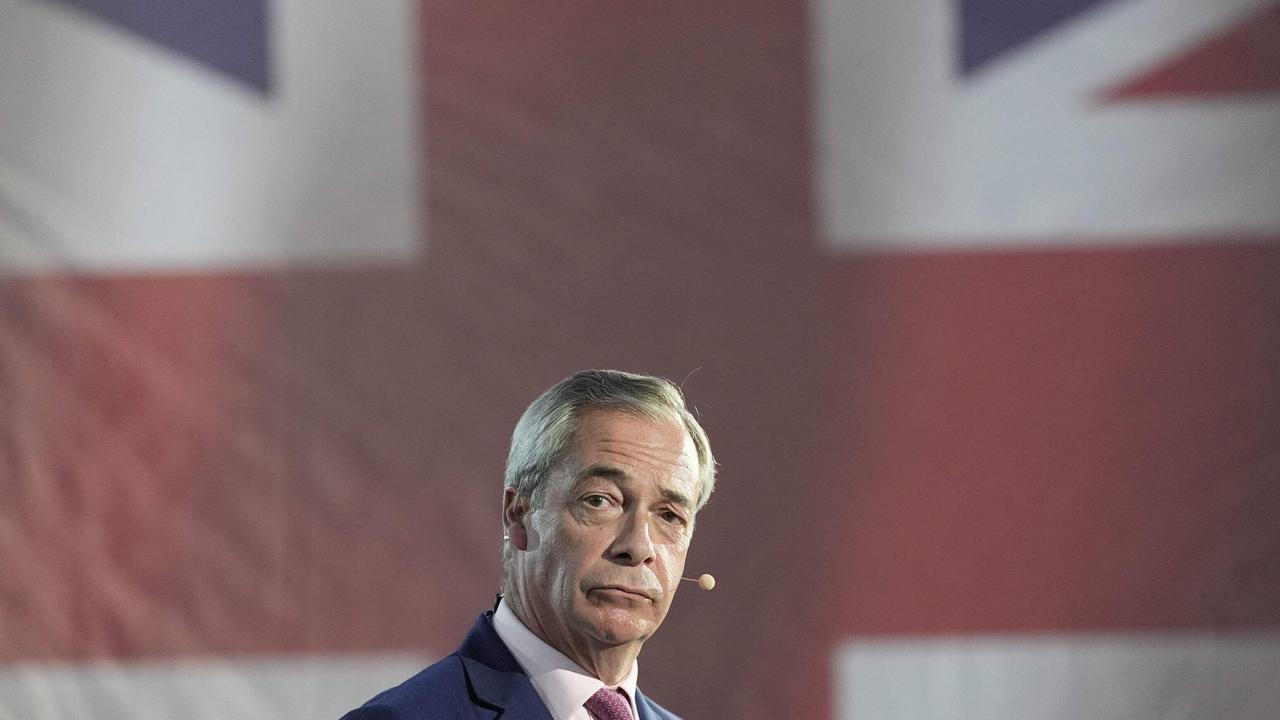
The department, led by Shabana Mahmood, said the measures would apply to asylum seekers who can work but choose not to, and to those who break the law.
Taxpayer-funded support will be prioritised for those contributing to the economy and local communities.
The Home Office says the measures are designed to make Britain less attractive to illegal migrants and make it easier to remove them.
“This country has a proud tradition of welcoming those fleeing danger, but our generosity is drawing illegal migrants across the Channel,” Mahmood said.
“The pace and scale of migration is placing immense pressure on communities.”
More than 100 British charities wrote to Mahmood urging her to “end the scapegoating of migrants and performative policies that only cause harm”, saying such steps are fuelling racism and violence.
Polls suggest immigration has overtaken the economy as voters’ top concern.
Some 109,343 people claimed asylum in the UK in the year ending March 2025, a 17 per cent rise on the previous year and six per cent above the 2002 peak of 103,081.
The Home Office said its reforms would be inspired not only by Denmark but other European countries, where refugee status is temporary, support is conditional and integration is expected.
“The UK will now match and in some areas exceed these standards,” the department said.
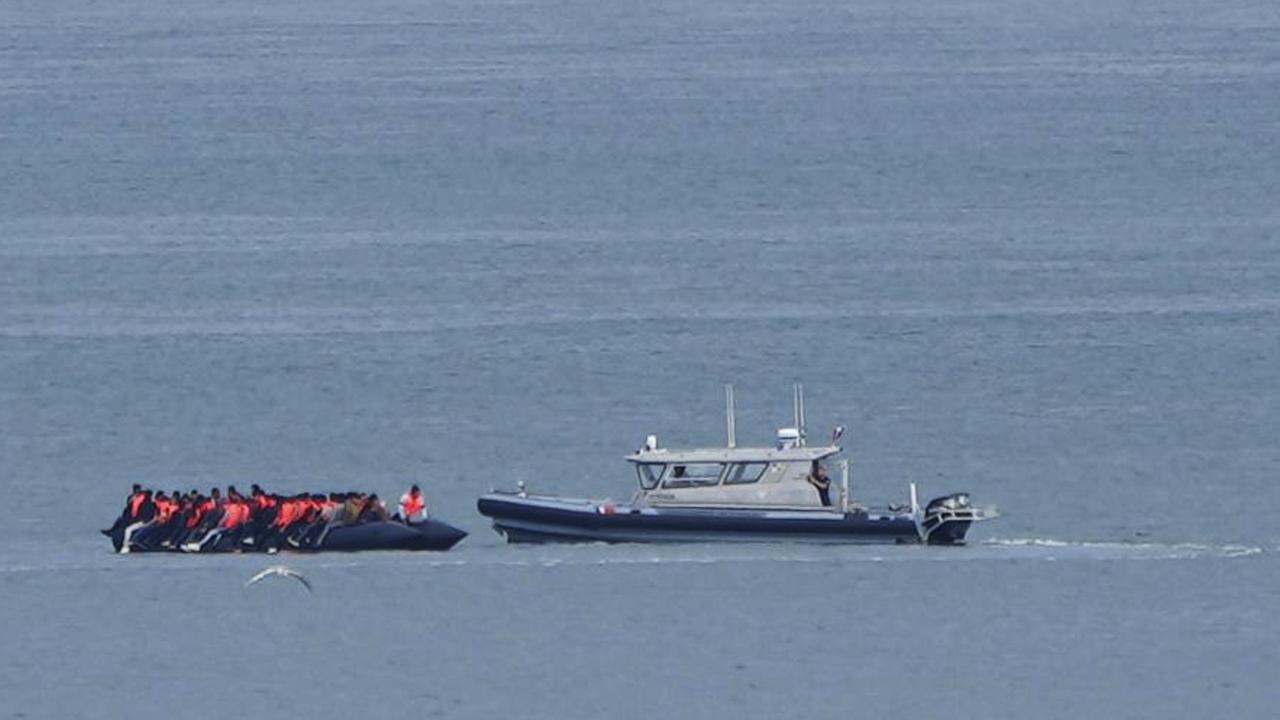
Earlier this year, a delegation of senior Home Office officials visited Copenhagen to study Denmark’s approach to asylum, where migrants are only granted temporary residence permits, usually for two years, and must reapply when these expire.
If the Social Democratic Danish government deems their home country safe, asylum seekers can be repatriated. The path to citizenship has also been lengthened and made more difficult, with stricter rules for family reunification.
Among other measures, 2016 legislation allows Danish authorities to seize asylum seekers’ valuables to offset support costs.
Britain currently grants asylum to those who can prove they are unsafe at home, with refugee status given to those deemed to be at risk of persecution. The status lasts for five years, after which they can apply for permanent settlement if they meet certain criteria.
Denmark has been known for its tough immigration policies for over a decade, which the Home Office says have reduced asylum claims to a 40-year low and resulted in the removal of 95 per cent of rejected applicants.
Britain’s Refugee Council said that refugees do not compare asylum systems while fleeing danger, and that they come to the UK because of family ties, some knowledge of English, or existing connections that help them start anew safely.
Anti-immigration sentiment has been growing in the UK, with recent protests taking place outside hotels sheltering asylum seekers with state funding.
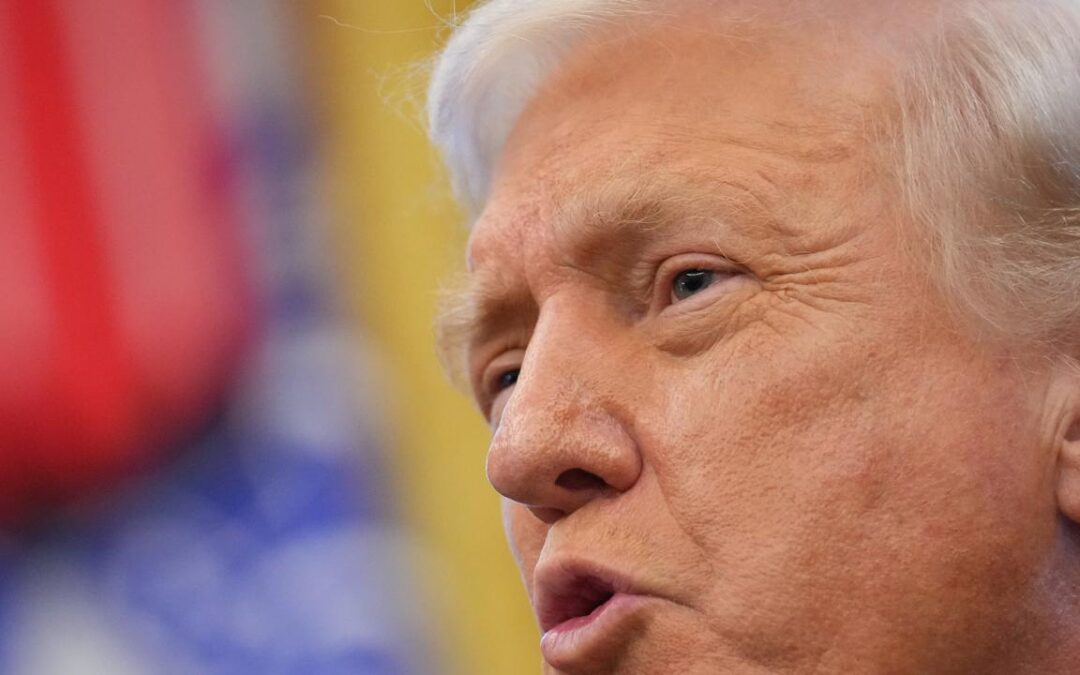
Trump spending millions buying up big in bonds
US President Donald Trump has recently bought at least $US82 million ($A126 million) in corporate and municipal bonds, including new investments in sectors benefiting from his policies.
According to the forms released by the US Office of Government Ethics on Saturday, Trump carried out more than 175 financial purchases from August 28 through to October 2.
The disclosures, made under a 1978 transparency law called the Ethics in Government Act, do not list exact amounts for each purchase, only providing a broad range.

The maximum total value of the bond purchases exceeded $US337 million ($A517 million), according to the filings.
Most of the assets listed in Saturday’s disclosures consist of bonds issued by municipalities, states, counties, school districts and other entities with ties to public agencies.
Trump’s new bond investments span several industries, including sectors that have already benefited, or are benefiting, from his administration’s policy changes such as financial deregulation.
Corporate bonds acquired by Trump include offerings from chipmakers such as Broadcom and Qualcomm; tech companies such as Meta Platforms; retailers such as Home Depot and CVS Health ; and Wall Street banks such as Goldman Sachs and Morgan Stanley.
Purchases of the debt of investment banks in late August included bonds of JP Morgan. On Friday, Trump asked the US Justice Department to investigate JP Morgan over its ties to the late financier and convicted sex offender Jeffrey Epstein.
The bank has said it regrets its past ties with Epstein and did not help him commit “heinous acts.” Trump also acquired Intel bonds after the US government, under Trump’s direction, acquired a stake in the company.
The White House did not immediately respond to a request for comment on Saturday.
The administration has said before that Trump has continued to file mandatory disclosures about his investments but that neither he nor his family has a role in running the portfolio, which is managed by a third-party financial institution.
Trump, who became wealthy in the real estate sector before entering politics, has previously said that he placed his companies into a trust overseen by his children.
A disclosure filed in August indicated that Trump had purchased more than $US100 million ($A153 million) in bonds since returning to the presidency on January 20. Trump also submitted his annual disclosure form in June, which indicated that income from his various ventures still ultimately goes to him, raising concerns of potential conflicts of interest.
In that annual disclosure, which appeared to cover the 2024 calendar year, Trump reported more than $US600 million ($A921 million) in income from cryptocurrencies, golf properties, licensing and other ventures.
It also showed Trump’s push into crypto had added substantially to his wealth.
The president’s June disclosure reported assets worth at least $US1.6 billion ($A2.5 billion), according to a Reuters calculation at the time.